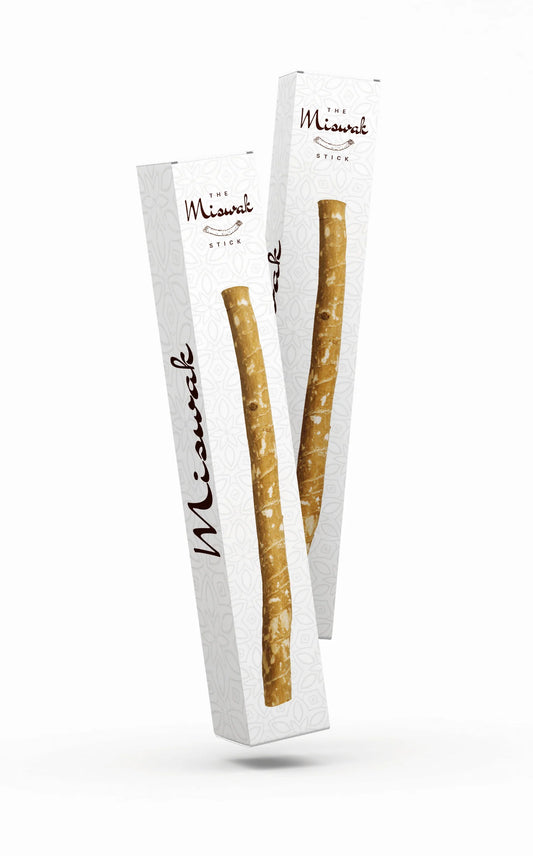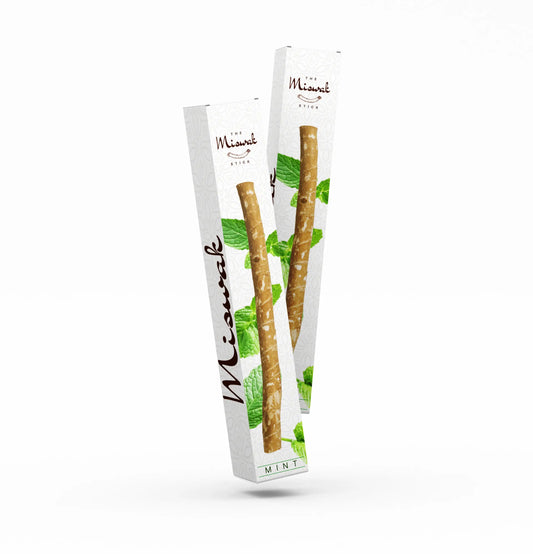Maintaining good oral hygiene is essential for overall health, and while modern toothbrushes are widely used, many people are turning to traditional alternatives like The Miswak stick. Miswak, derived from the Salvadora persica plant, has been used for centuries as a natural toothbrush. But do dentists recommend Miswak? Let’s explore it's benefits and find out what dental experts have to say.
What is Miswak?
Miswak is a chewing stick used to clean teeth and maintain oral hygiene. It contains antibacterial, antifungal, and anti-plaque properties, making it a powerful natural alternative to conventional toothbrushes. Many cultures around the world continue to use Miswak for its medicinal and oral health benefits.
Dentists’ Perspective on Miswak
While modern dentistry is based on science-backed techniques, many dentists acknowledge the benefits of Miswak due to its natural cleansing properties. Here’s what dental experts say about Miswak:
1. Helps Prevent Tooth Decay
Tooth decay is a major concern in oral health. Studies show that Miswak can slow down decay by promoting saliva production. Saliva plays a crucial role in washing away food particles and neutralizing harmful bacteria, reducing the risk of cavities.
2. Fights Against Bacteria
Bacterial buildup in the mouth is one of the main causes of tooth decay and gum disease. Miswak contains natural antibacterial compounds that help fight harmful bacteria, reducing the risk of infections.
3. Protects Against Plaque and Tartar
Plaque buildup can lead to tartar, which eventually causes tooth decay and gum disease. The antibacterial properties of Miswak prevent plaque from forming, keeping teeth and gums healthy.
4. Naturally Whitens Teeth
Dentists agree that excessive consumption of coffee, tea, and smoking leads to teeth discoloration. Miswak helps remove stains and naturally whitens teeth without the use of chemical-laden toothpaste.
5. Improves Gum Health
Strong gums are essential for healthy teeth. The antibacterial and anti-inflammatory properties of Miswak promote gum health by reducing swelling, gingivitis, and bleeding.
6. Reduces Bad Breath
Bad breath is caused by bacterial growth inside the mouth. Miswak’s antibacterial qualities help eliminate odor-causing bacteria which contributes to bad breath, providing fresh breath naturally.
Is Miswak a Complete Replacement for Toothbrushes?
While Miswak offers multiple oral health benefits, many dentists recommend using it in combination with modern toothbrushes for the best results. The reason is that some areas of the mouth, especially between the teeth, may not be thoroughly cleaned using Miswak alone. Therefore, integrating Miswak into your oral care routine along with brushing and flossing can yield optimal results.
How to Use Miswak Correctly?
To gain the full benefits of Miswak, follow these steps:
- Cut about 1cm from one end of the Miswak stick.
- Chew the cut end until it forms soft bristles.
- Use the bristles to brush your teeth in a circular motion.
- Rinse your mouth after cleaning.
- Store the stick in a dry place and trim the bristles regularly.
Conclusion: The Miswak Stick – A Sustainable Toothbrush for a Sustainable World
In today’s world, where sustainability is a major concern, Miswak serves as an eco-friendly alternative to plastic toothbrushes. Unlike plastic toothbrushes that contribute to environmental pollution, Miswak is biodegradable and sustainable toothbrush. Using Miswak not only improves oral health but also helps in reducing plastic waste, making it an excellent choice for those looking to live a greener lifestyle.
So, while dentists may not universally replace modern toothbrushes with Miswak, many recognize its incredible benefits. By incorporating Miswak into your daily oral care routine, you can achieve better dental hygiene while contributing to a sustainable planet.




